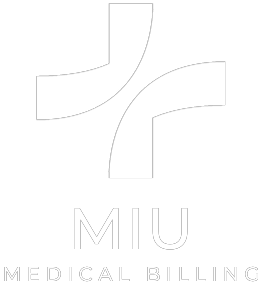POS 11 Description In Medical Billing
Medical billing is one of the most crucial functions in medical organizations since it relates to processing payment procedures between insurance companies, caregivers, and patients. Another important feature used in medical billing is the Place of Service codes, discussed below. These codes define the locations of applicable healthcare services so that they can properly and correctly bill for care services given to their recipients. Of these codes, POS11, which is involved in medical billing, is mainly used in most outpatient offices.
This blog shall cover an understanding of POS 11 in medical billing, its categorization under POS codes, and its implications for the reimbursement system. We will also describe the correct usage of POS 11 in medical billing, inpatient or outpatient, and how this code differs from POS 21 and POS 23.
What is POS 11 or Place of Service 11 in Medical Billing?

What is POS 11? When a doctor or a healthcare provider has a private practice or a group of providers runs a private practice working mainly on an outpatient basis, it is referred to as POS code 11, which indicates an “office.”
POS 11 in medical billing has many key features and can benefit both the provider and the insurance companies by streamlining medical billing and enhancing the overall efficiency of the billing process. With the correct Place of Service 11 code placement, it can help in decreasing the administrative load and speeding reimbursements to the healthcare provider.
The importance of POS 11
The POS code 11 affects the reimbursement rates; that’s why it is deemed important in medical billing. If there is a mistake in the POS code, it can result in overbilling or underbilling, and it can be a hassle for the provider.
As compared to hospital-based healthcare, the cost of a POS 11 setting is much less. Let’s suppose that there is an error in the POS code; this could result in a reimbursement with a larger amount of payment from the insurance, i.e., overbilling. This can cause issues such as demands to repay the insurance or may even be considered fraud. On the other hand, underbilling can result too, due to which the provider is reimbursed with a lesser payment.
Types of Services Under POS Code 11
Some laboratory investigations POS 11 in medical billing include:
• Routine examinations and follow-ups
• Blood tests, such as billing for 36415 in POS 11
• Vaccinations
• Minor outpatient procedures
• Diagnostic screenings
These services are done in the physician’s office, and thus, using POS 11 in medical billing is essential to display the correct outpatient status.
Is POS 11 Inpatient or Outpatient?
Whether the POS 11 in medical billing is defined as an inpatient or an outpatient is another concern that may receive attention. The answer is clear: POS 11 is outpatient. It is served in an office area, which indicates that the patient is not admitted to the hospital and is often discharged after service.
Knowing whether POS 11 is used in medical billing for inpatient or outpatient patients is essential to understand insurance companies’ claims processing. In most of their settings, outpatient services coded as POS 11 cost less than a dollar than inpatient care because the level of care usually utilized is relatively lower.
Impact on Billing Practices
Correctly identifying POS 11 in medical billing as outpatient helps healthcare providers get reimbursed appropriately. This is why, for instance, if you classify a service from POS 11 as inpatient care or in the opposite way, your claims will be rejected, you will be paid a lower amount, or you will face other billing challenges. Follow-up appointments, diagnostic tests, laboratory tests, and other routine examinations should also be billed under POS 11 in medical billing to be acknowledged as outpatient services.
Commonly Occurring Mistakes and How to Avoid Them with POS 11
Although through these codes the billing has been made a lot easier, there is always a margin of confusion, due to which errors can occur. Let’s discuss some of the common mistakes and also how you can avoid them by being a little more vigilant while adding POS codes to the bills.
- In telehealth, during the COVID-19 pandemic, a lot of rules were altered according to the situation, and healthcare providers were given the liberty to use the POS 11 code for their telehealth services. As for now, the rules have again evolved, and it’s better to keep yourself up-to-date with the latest updates.
- Multiple practices: A lot of healthcare providers work in a hospital and simultaneously run a private office; hence, it’s crucial to keep in mind in what setting the healthcare service was rendered by the provider, and the POS code should be according to that.
- The ownership or authority: sometimes, a hospital may have many branches that appear to be a private offices. This could be mistaken and billed as POS 11. That’s why it’s important to get this information from healthcare practice qualification.
Overview of Other POS Codes in Medical Billing
POS stands for in medical billing as Place of Service. POS in medical billing is a system consisting of codes and is used by healthcare providers. These codes, when used in claims, refer to the type of setup the service was provided to the patient. This system was proposed by the Centers for Medicare & Medicaid Services (CMS) for the purpose of standardization of billing in different setups. As with any other information provided, mentioning the healthcare setup or environment in which it was rendered is extremely crucial in medical billing. These codes are divided into two categories known as the facility and non-facility POS codes.
Non-facility POS codes are normally used for healthcare services rendered anywhere other than a hospital. These include private clinics, doctors’ private offices, schools, and others. All of these have codes of their own; for example, for an independent clinic, POS 49 is to be used.
When a healthcare service is rendered at a hospital or any facility run by a hospital, such as a nursing home, they are referred to by facility POS codes. They help in keeping a detailed record of all the patients when it comes to billing. For example, for an inpatient hospital, POS 21 is used.
POS 21 in Medical Billing
Inpatient hospital services are implemented by POS 21 in medical billing. Services that are offered to a patient when the patient spends at least one night in a hospital are called inpatient services. POS 21 ensures that healthcare providers are adequately paid; second, the cost of the more extensive care typical in an inpatient setting is correctly billed.
POS 23 in Medical Billing
POS 23 in medical billing is used for Emergency Room services. This code is used when a patient has been treated in a hospital or department for a medical emergency. What is important to note in POS 23 compared to POS 11 in medical billing is that emergency service entails high acute-level care and scaled reimbursement.
POS 24 in Medical Billing
MIU Medical Billing is familiar with using Place of Service (POS) codes from POS 24 (services performed at the facility) to complete medical billing. By providing accurate coding and adherence to healthcare laws, the company helps providers get reimbursements more efficiently and leverage their revenue in these specialized environments.
POS on Superbill
The Place of Service (POS) code on a superbill represents a piece of evidence of the location from which a health care service was delivered. It is a binary labeling applied to insurance companies to select how they will reimburse services offered, that is, the type of services. To avoid denials/payment delay claims, the appropriate POS should be put on the superbill. For example, POS 11 covers clinical office services, while POS 22 covers ambulatory hospital visits. MIU Medical Billing produces correct POS captures that streamline the claim, making the revenue cycle more efficient for healthcare providers.
Comparing POS 11 with Other Medical Billing CPT Codes
Medical billing differs from POS 21 and POS 23 since it relates only to outpatient office visits. However, POS 21 is in medical billing concerning inpatients, and POS 23 means emergency room service in medical billing. These places have specific reimbursement rules, and they need to use the correct code to help bill properly and prevent the claims from being free.
Importance of Correctly Using POS Codes
It is essential to show that the labels of the POS 11 code related to medical billing should be correct. Incorrect coding has ramifications that range from claim rejection to delayed payment or reduced fees. For instance, when a healthcare provider codes a service under POS 21 when it belongs to POS 11 in medical billing, the claim will be denied or reimbursed less.
Regrettably, due to misconceptions in POS coding, plenty of business and client encounters can cause several unintended effects.
Consequences of Incorrect Urgent Care POS Medical Billing Codes

There is always a problem in the claims process when people use the wrong codes; for example, they use POS 23 for medical billing for an office visit or POS 11 for inpatient services. Failure to use POS 11 correctly for inpatient services in medical billing exposes health providers to rejected claims and financial loss. This is why the particular decision of whether POS 11 is inpatient or outpatient, which is the latter as defined above, must be made and applied for the proper billing. The lists given in medical billing help identify the location of services accurately and adequately.
Conclusion
There is always a problem in the claims process when people use the wrong codes; for example, they use POS 23 for medical billing for an office visit or inpatient services. Failure to use POS 11 correctly in medical billing exposes health providers to rejected claims and financial loss. This is why the particular decision of whether POS 11 is inpatient or outpatient, which is the latter as defined above, must be made and applied for the correct billing. The lists in medical billing help identify the location of services accurately and adequately.
FAQs
Can I bill 36415 for POS code 11 in medical billing?
Nonetheless, you can ‘bill’ 36415 routine venipuncture under POS 11 even though no code indicates ‘outpatient procedures.
What is the difference between the place of service 11 and 24?
POS 11 is for the office; however, POS 24 is for the ambulatory surgical center. Both are outpatient services, but the working environment varies a lot.
What does POS 11 represent?
In medical billing, Simple Revenue Code POS 11 refers to services rendered at an office as outpatient services.
What is an 11 condition code?
Some billing systems use the condition code 11 to refer to patients who have been involved in an accident. However, this should not be confused with POS 11, office-based outpatient care.




